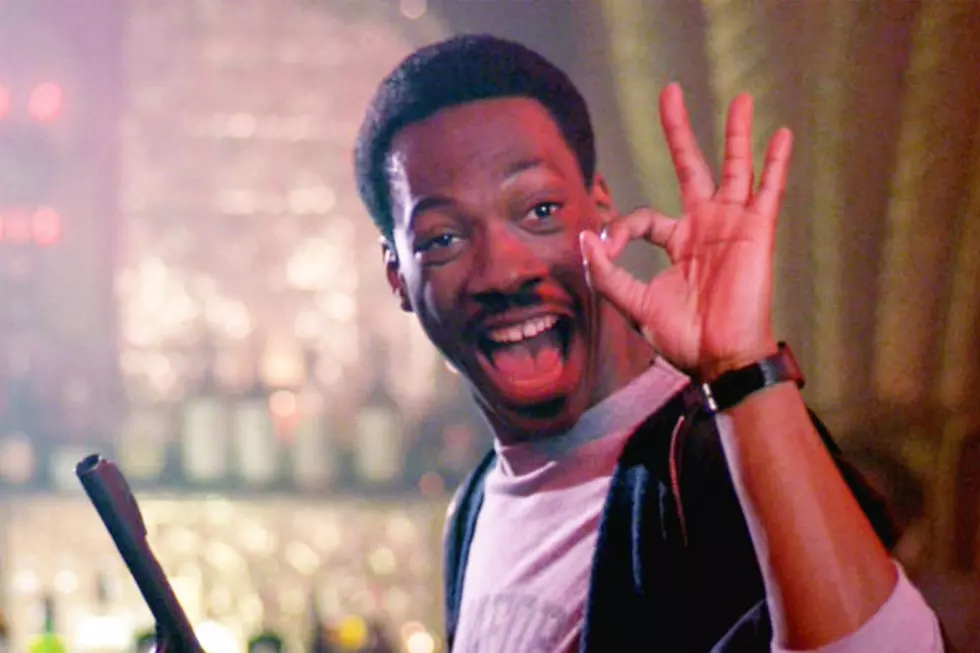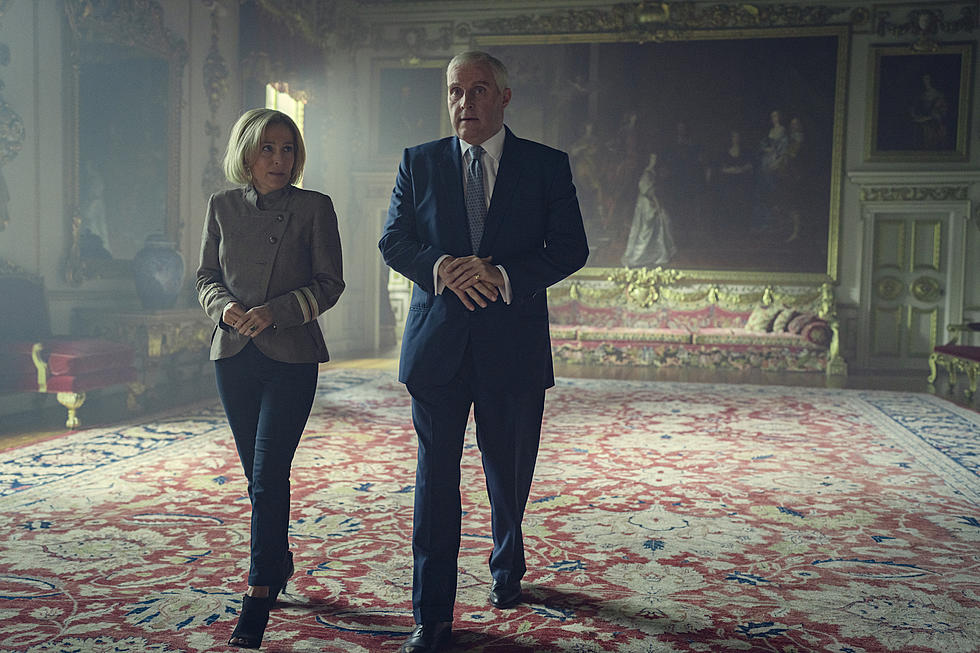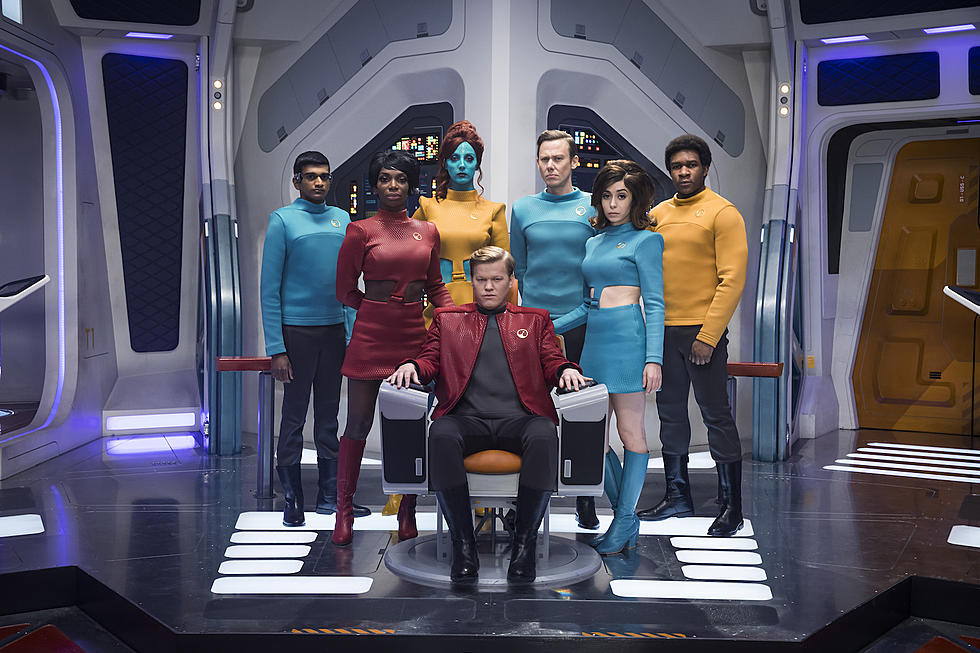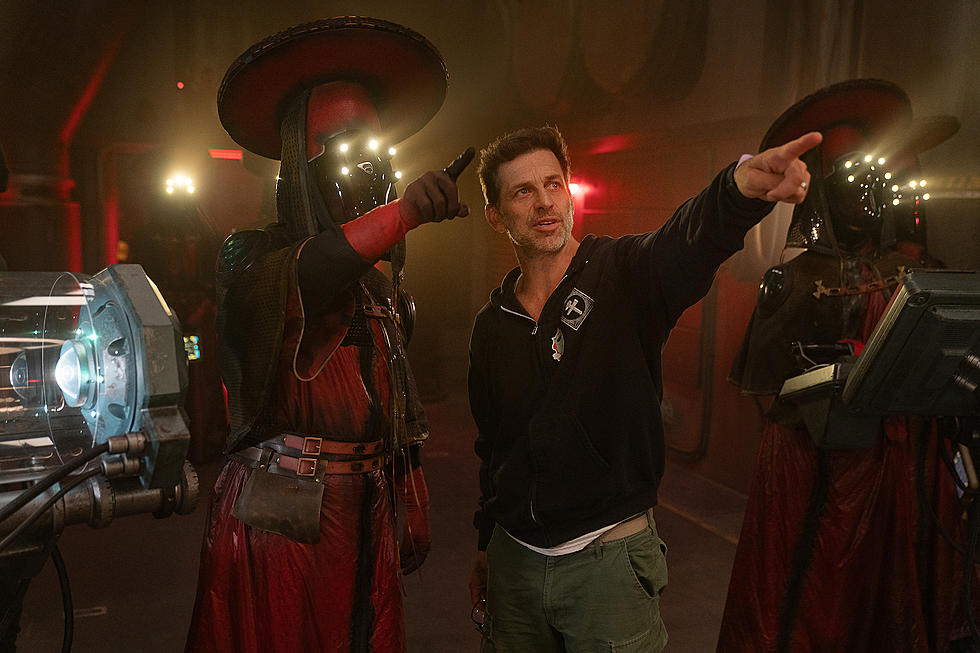
Netflix Is Creating a Future of Film That Looks a Lot Like Television’s Past
When the Cannes Film Festival opens in May it will do so without Netflix. The most prestigious festival in the world has announced that Netflix movies are banned from the Cannes competition. (They can still play out of competition at the festival.) Last year, both Okja and The Meyerowitz Stories played at Cannes — to solid reviews and lots of controversy after it became clear that these movies were going straight to Netflix (in France, the X is silent) and not playing in French cinemas.
The ban comes on the heels of Steven Spielberg’s comments that Netflix movies aren’t really movies, and shouldn’t be allowed to compete for Academy Awards. (Netflix’s documentary Icarus was the 2018 winner of the Best Documentary Feature Oscar.) “Once you commit to a television format, you’re a TV movie,” Spielberg said. “You certainly, if it’s a good show, deserve an Emmy, but not an Oscar.”
Spielberg’s argument was controversial, but not nearly as frustrating as the act of trying to actually watch some of the movies Netflix is releasing almost weekly (or daily!) in 2018. By the end of this calendar year, Netflix will have 700 different original films and series available on its streaming service. You could cancel cable, stop going to the movie theater, throw away your television, and still have hours of new content to watch every single night of the year on Netflix. [Extreme Netflix Intro Sound Effect]
The 700 number is a cumulative total, but Netflix is also planning on releasing 80 features in 2018 alone, more than one a week for the entire year. (By contrast, Disney, Fox, Universal, Warner Bros., and Sony have 56 features planned for the rest of 2018 between the five of them.) Here, now, exclusive footage of Netflix’s current film business model:
Netflix has released some outstanding films; in addition to the Oscar-nominated Mudbound and Strong Island, and the Oscar-winning Icarus, they’ve released Ava DuVernay’s 13th, and Macon Blair’s I Don’t Feel at Home in This World Anymore. But in recent months the site’s cinematic ambitions seem to have broadly shifted, from challenging arthouse fare and potential award winners to cinematic comfort food of the glossiest and least challenging sort.
That includes Netflix’s biggest film gamble to date: Bright, a small-screen version of a big-screen blockbuster, with Will Smith and Joel Edgerton as mismatched buddies in an orc cop action thriller that cost a reported $90 million. Shortly after its Sundance premiere, Netflix added A Futile and Stupid Gesture, a raunchy comedy about the history of National Lampoon starring Will Forte and Domhnall Gleeson. Then they stunned the film world by announcing their acquisition of The Cloverfield Paradox, starring Gugu Mbatha-Raw, David Oyelowo, and Daniel Bruhl, and releasing it the very same day.
They took that one off Paramount’s hands; a few weeks later they snagged another sci-fi film with big stars called Extinction that had been sitting in limbo at Universal. After that came Mute, still more science fiction with Paul Rudd and Alexander Skarsgard. Their latest release, at least for the next few hours, is Game Over, Man!, a new comedy from the team behind the Comedy Central series Workaholics. Its current Rotten Tomatoes’ score: 0. (The average Rotten Tomatoes score of the films listed in the last two paragraphs: 23.)
No one would ever mistake Netflix’s recent film lineup, which includes the likes of yet another Adam Sandler comedy, the Jared Leto Yakuza movie The Outsider, and a rebooted Benji, for a fancy film festival lineup — or a list of Oscar nominees. (Razzie nominees, maybe.) Instead, it seems as if the future Netflix is creating for movies looks a lot like the past in another medium: Television in its earliest days, an era of programming famously dubbed “the vast wasteland” by FCC chairman Newton Minow.
There were a few great television shows in the 1940s and ’50s, just as there are occasionally great Netflix movies too. (Who doesn’t want to see CGI-de-aged Al Pacino and Robert De Niro team up with Martin Scorsese again on The Irishman?) But when Minow described television in 1961, calling it a swamp of “formula comedies about totally unbelievable families, blood and thunder, mayhem, violence, sadism, murder” he could have been talking about the “New Arrivals” section of Netflix. (“You will see a few things you will enjoy,” Minow conceded. “But they will be very, very few. And if you think I exaggerate, I only ask you to try it.”)
Of course, Minow was also talking about television’s commercials, something Netflix does not have. But the experience of watching Netflix movies eerily mirrors the experience of watching vintage TV. The vast majority of television programming in the days of wood-paneled, tube TV sets was designed to be intelligible to the widest possible audience utilizing the least amount of attention. It was understood that the television was a form distracted entertainment; after commercial breaks characters would catch viewers up on what happened just minutes before in case they forgot or came in late. So little was expected of the audience that the sitcoms even provided their own laugh tracks to instruct viewers when the jokes were funny.
Television grew as a medium, and in the last 20 years we’ve seen the rise of shows that can compete with or surpass any film in terms of narrative complexity. But almost no one just watches television in 2018; they watch television while they check their email, or update their Facebook, or play Candy Crush. The more Netflix movies I consume, the more I become convinced they are being designed with specifically this audience in mind. The company knows these films are going to play at home to families with wandering eyes, and not in darkened theater free of diversions.
It’s not that these Netflix movies can’t be enjoyed while you are distracted by your phone or your tablet; it’s that they are undeniably better that way. Paying attention to Bright will only make the film worse by exposing the vast holes in the plot and how little the film’s central metaphor actually matters. The only thing that comes from scrutinizing Mute is wondering why a film about an Amish amateur private eye needed to be set in a dystopian science-fiction future. Glancing at these films occasionally, you can admire their cool production design, makeup, and effects without getting lost in the weeds of their goofy plots.
To some degree, the argument about whether Netflix movies deserve Cannes recognition or Oscar consideration is moot. Increasingly, Netflix isn’t funding movies for Cannes or the Academy Awards (they bought nothing at this year’s Sundance Film Festival, though they’ve acquired a couple titles after the fact), they’re making movies for the person who wants something playing in the background while they shop for cheap workout pants on Amazon.
I’m not suggesting the creators of these movies don’t care what they make. Of course they do. I’m just suggesting that as far as Netflix is concerned, it may not matter whether they make a masterpiece or not. Their audience is paying $8 a month for all the Netflix content they can shove in their eyeballs, compared to at least that much (or up to double that, if you live in an urban area) for a single movie in the multiplex. At that price point, when you’re not getting dressed up, paying for a babysitter, paying for dinner, and buying overpriced popcorn, the threshold for satisfaction is so much lower than it is in the theatrical setting.
A couple of stars, some cool visuals, and 90 minutes of distraction is enough to say you got “your money’s worth.” If you think I’m wrong ask yourself this question: How many people read this article while “watching” something else on their television?
Gallery - The Best Netflix Original TV Series and Films:
More From ScreenCrush









